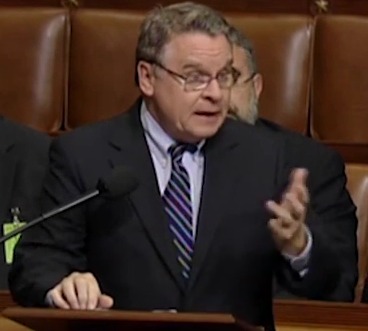Mr. Speaker, as a member of the Helsinki Commission, and also as the Co-chair of the Religious Prisoners Congressional Task Force, I rise today to speak on behalf of a young man who has had his human rights violated, a young man with a wife and five young children, a man who, because of the peaceful practice of his religious beliefs, is in prison in Turkmenistan. In December of 1998, security officials arrested and imprisoned Mr. Shageldy Atakov, pursued trumped-up charges against him, and on March 19, 1999, Mr. Atakov was sentenced to 2 years in prison. Why? Simply because he decided to change his religion from Muslim to Christian. Despite the fact that the government of Turkmenistan is a signatory to the Helsinki Accords and other international agreements, officials have blatantly violated Mr. Atakov’s and other individuals’ rights to freedom of conscience, freedom of speech, and the freedom of assembly.
Before KNB officials, that being the new name for the KGB, arrested Mr. Atakov, they, along with local religious community leaders, told him if he converted back to his previous religion, he would receive a car, a house and a good job, a great offer in a country like Turkmenistan where people make approximately $40 per month. However, these community leaders and security officials made it clear that if Mr. Atakov refused this offer, they would “find” charges against him and ensure that he was imprisoned. Over a 2-month period, various officials visited Mr. Atakov to repeat this offer and threats. In one of the visits, secret police officials said he would be imprisoned and “we will quickly force you into silence.” The KNB secret police have tried to silence Mr. Atakov in prison. Reports show that in July of 1999 and March of 2000 Mr. Atakov was forced into the special punishment cell in which he was severely beaten by guards, denied water, and fed only every other day. His family saw him at the end of the 10 days in 1999, and they reported that he was barely alive.
In July of 1999, it was reported that President Niyazov gave Mr. Atakov presidential amnesty, as allowed under Section 228 of the criminal code; but for some strange reason, security officials did not release him. Instead, they put him in the punishment cell described above. In fact, because of the pressure from the prosecutor, who said the previous sentence was too lenient, a new trial was held in August of 1999; and Mr. Atakov was sentenced to 4 years in prison and fined $12,000. That is an amount equivalent to about 25 years of salary for the average Turk citizen. Since February of this year, KNB officials forced his family into internal exile, the principal has kicked his children out of school, his wife has been told she will remain in exile until she renounces her faith, Mr. Atakov’s brother was arrested and tortured in April of 1999, and other family members have lost their jobs and suffered as well. In December of 1999, during a raid on a Russian family living in Turkmenistan, KNB officials told them, “First we will deport all of you foreign missionaries, then we’ll strangle the remaining Christians in the country.” All of this government attention to one man and his family simply because of religious beliefs. This injustice is an outrage.
The tactics of the KNB show that the KGB forces and methods of operations did not disappear with the demise of the Soviet Union, but are still alive and well. The arrest and subsequent imprisonment of Mr. Atakov are not isolated events, but are a result of the KNB secret police policy in Turkmenistan. In 1997, the legislature adopted severe restrictions on religion, imposing compulsory re-registration of all religious communities. According to the legislation, a religious community must have at least 500 members before it can obtain registration. Without this legal status, all religious groups are considered illegal and their activities therefore are punishable under the law. Since June of 1997, the secret police have detained, interrogated and physically assaulted many religious believers. In addition, these officials have raided churches, interrupted worship services, searched homes and confiscated over 6,700 pieces of literature. In each instance, the KNB warned citizens that the Christian faith in particular is forbidden in Turkmenistan. Religious believers throughout Turkmenistan suffer if they practice their religion but do not belong to either of the two “registered” religions. One is the Islamic faith; the other is the Russian Orthodox.
Mr. Speaker, I recently received reports that Mr. Atakov’s health has deteriorated rapidly and he may be at the point of death. I urge the government of Turkmenistan to allow an international organization, such as the Red Cross, to visit Mr. Atakov, assess his health, and provide any medical assistance he might need. Even, I might say, the old ruthless Soviet regime allowed prisoners medical health. I urge the government of Turkmenistan to live up to its commitments under the Helsinki Accords and other international agreements to uphold and to protect freedom of speech, assembly and belief. Further, I urge the government of Turkmenistan to release Mr. Atakov under their own president’s amnesty granted to him last year. Finally, I urge the government to stop harassing and persecuting people of faith and recognize their important and rich contribution to their nation.






